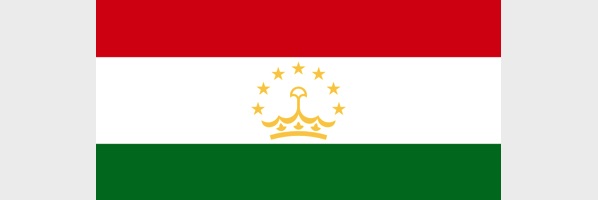October 15th, 2021 | USCIRF
The United States Commission on International Religious Freedom (USCIRF) is alarmed by the government of Tajikistan’s treatment of 70-year-old Jehovah’s Witness Shamil Khakimov, who is serving an excessively harsh prison sentence for alleged extremism for peacefully practicing his faith and reportedly worsening in health especially without proper medical attention. This treatment further demonstrates why the U.S. Department of State should redesignate Tajikistan as a Country of Particular Concern (CPC) and lift the national security waiver which prevents the United States from imposing appropriate sanctions against violators of religious freedom.
“The government of Tajikistan’s shocking treatment of Shamil Khakimov amounts to a death sentence for peaceful religious practice,” said USCIRF Vice Chair Nury Turkel, who advocates for Shamil Khakimov through USCIRF’s Religious Prisoners of Conscience (RPOC) Project. “Khakimov’s health is rapidly deteriorating, but Tajikistani authorities have refused repeated requests by the United Nations Human Rights Committee for his immediate release and access to adequate medical treatment in accordance with the Mandela Rules. Such atrocious violations cannot be tolerated if Tajikistan has any interest in improving its record on religious freedom. USCIRF urges the U. S. government to sanction Tajikistani prison officials responsible for these atrocities.”
Khakimov has high blood pressure and was still recovering from major surgery at the time of his arrest on February 26, 2019. His leg that was operated on is now covered with open sores and is worsening. Tajikistani prisons are notoriously harsh, with torture and inhumane conditions widely documented. Khakimov has reportedly shown symptoms of COVID-19 and his general health remains dire. In addition to his physical suffering, Khakimov is under severe emotional distress due to the death of his son in September. His son was the only visitor allowed to see him, and Khakimov was not permitted to attend his funeral in further violation of UN Standard Minimum Rules for the Treatment of Prisoners (known as the Mandela Rules).
“Such flagrant abuse of ‘extremism’ charges is sadly typical of Tajikistan and only reinforces the need for the U.S. State Department to again redesignate Tajikistan as a Country of Particular Concern,” said USCIRF Commissioner Tony Perkins. “More importantly, the U.S. government should remove the national security waiver, which negates any punitive consequences resulting from that designation. The waiver only enables the Rahmon regime to abuse religious freedom under the guise of security, which risks diminishing the perceived threat of real violent extremism among the population. USCIRF firmly believes that this is an ineffective long-term strategy for countering violent extremism.”
Since 2012, USCIRF has recommended that the State Department designate Tajikistan a CPC in response to the government’s increasing repression following the passage of a strict religion law in 2009. The State Department followed this recommendation in 2016 and has designated Tajikistan a CPC every year since.
USCIRF recently spoke about the Tajikistani government’s widespread misuse of extremism laws in an episode of the Spotlight podcast, and has previously reported on religious freedom abuses in Tajikistan as well as its treatment of Jehovah’s Witnesses. In its 2021 Annual Report, USCIRF again recommended that the U.S. government designate Tajikistan as a “country of particular concern” for its systematic, ongoing, and egregious violations of religious freedom.

Commentaires récents